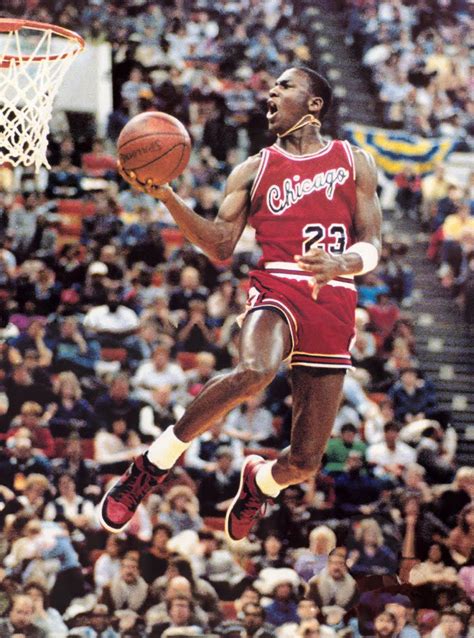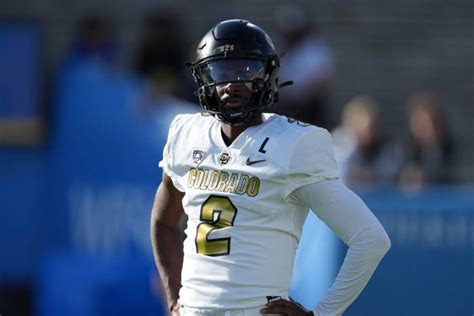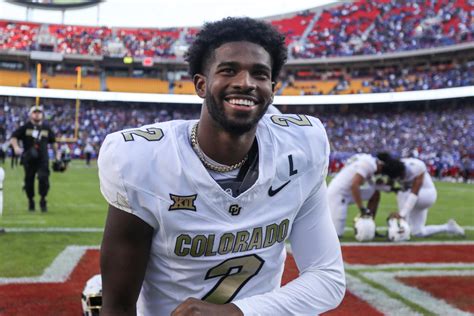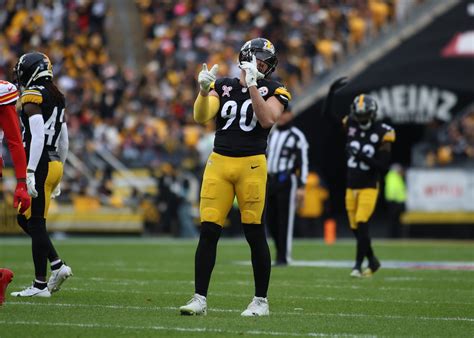
Facing a lackluster performance against the Memphis Hustle, Delaware Blue Coats coach, Doug West, delivering the timeout speech while head coach Matt Brase served as acting coach for the Sixers, unleashed a profanity-laced tirade urging his players to elevate their intensity or be replaced, as the Sixers’ G League affiliate struggles to maintain competitiveness.
Delaware Blue Coats interim coach Doug West delivered a fiery, expletive-laden timeout speech during a recent game against the Memphis Hustle, demanding greater effort and urgency from his players or warning them of potential replacement. With head coach Matt Brase serving as an acting coach for the Sixers, West’s passionate outburst highlighted the team’s struggles and the urgent need for improved performance, reflecting the intense pressure within the Sixers’ G League affiliate to develop talent and secure victories. The incident occurred during a period of heightened scrutiny for the Blue Coats, as they attempt to balance player development with the need to win games, a challenge that often characterizes the G League experience. West’s message was clear: lackluster play would not be tolerated, and players needed to demonstrate a greater commitment to the team’s objectives.
The Delaware Blue Coats, the G League affiliate of the Philadelphia 76ers, found themselves under the spotlight following a passionate and profanity-filled timeout speech delivered by interim coach Doug West during a game against the Memphis Hustle. With head coach Matt Brase temporarily serving as an acting coach for the Sixers, West stepped in and did not hold back, forcefully conveying his dissatisfaction with the team’s performance and demanding immediate improvement.
West’s outburst, captured and circulated on social media, quickly drew attention to the Blue Coats’ struggles. The speech, punctuated with expletives, conveyed a sense of urgency and frustration as West challenged his players to elevate their intensity and commitment or face the consequences. “F—ing stars don’t start. Play f—ing hard or get the f— out,” West was heard saying, making his message unequivocally clear.
The context of the speech is crucial in understanding its intensity. The Blue Coats, like many G League teams, operate under a dual mandate: to develop young talent for potential NBA call-ups and to maintain a competitive team capable of winning games. Balancing these objectives can be challenging, particularly when the parent club has specific developmental goals for individual players. West’s speech suggests a breaking point, a moment where the need for immediate performance outweighed the more patient approach often associated with player development.
The Blue Coats have faced challenges in recent games, struggling to find consistency on both ends of the floor. The team’s performance has been marked by periods of sluggish play, poor decision-making, and a lack of intensity, leading to frustrating losses. West’s timeout speech appears to be a direct response to these issues, a desperate attempt to ignite a fire within the team and demand a higher level of accountability.
The G League is known for its high turnover rate, as players constantly vie for opportunities to impress NBA scouts and earn promotions. This competitive environment can create a sense of urgency and pressure, but it can also lead to instability and a lack of team cohesion. West’s speech tapped into this dynamic, reminding his players that their positions were not guaranteed and that consistent effort was essential to their long-term success.
West’s words undoubtedly resonated with the players, forcing them to confront the reality of their situation. Whether the speech will ultimately lead to a positive change in performance remains to be seen, but it has certainly injected a new level of intensity into the Blue Coats’ season. The team’s subsequent games will be closely watched to see if West’s message has been heeded and whether the Blue Coats can turn their fortunes around.
The use of such strong language in a coaching setting is often a subject of debate. Some argue that it is necessary to shock players out of complacency and motivate them to perform at their best, while others believe that it can be counterproductive, creating a negative and hostile environment. West’s speech likely reflects his own coaching philosophy and his assessment of what the team needed to hear in that particular moment.
The incident also highlights the broader challenges faced by G League coaches, who are often tasked with managing a diverse group of players with varying levels of experience and motivation. These coaches must be skilled communicators, capable of delivering tough messages while also fostering a supportive and developmental environment. West’s speech, while controversial, underscores the passion and commitment that G League coaches bring to their roles.
Ultimately, the success of West’s approach will be measured by the Blue Coats’ performance in the coming weeks. If the team responds positively and begins to play with greater intensity and focus, the speech will be viewed as a turning point. If, however, the team continues to struggle, it may raise questions about the effectiveness of West’s methods and the overall direction of the Blue Coats’ program.
The episode serves as a reminder of the high-stakes environment of professional basketball, where pressure to perform is constant and the margin for error is small. It also sheds light on the unique challenges and opportunities that exist within the G League, where young players and coaches are constantly striving to prove themselves and achieve their NBA dreams.
West’s fiery timeout speech is just the latest example of the intense passion and competitive spirit that define the sport. It remains to be seen whether it will be a catalyst for positive change within the Blue Coats organization, but it has certainly captured the attention of the basketball world and sparked a debate about the role of motivation and accountability in professional sports.
The Sixers have not yet issued an official statement regarding West’s timeout speech. It is likely that the organization will address the matter internally, emphasizing the importance of maintaining a professional and respectful environment while also acknowledging the need for accountability and high performance.
The incident raises questions about the balance between player development and winning within the G League system. While the primary goal of the G League is to prepare players for the NBA, teams are also expected to be competitive and provide an entertaining product for fans. West’s speech suggests that he believes the Blue Coats have not been striking the right balance, and that a greater emphasis on winning is necessary.
The long-term impact of West’s speech will depend on several factors, including the team’s response, the organization’s reaction, and West’s ability to adjust his approach moving forward. It is a moment that will be remembered and discussed within the Blue Coats organization for some time to come, regardless of its ultimate outcome.
The story also highlights the increasing prevalence of social media in sports, where even seemingly private moments can be captured and shared with a global audience. West’s timeout speech quickly went viral, generating widespread discussion and debate. This underscores the importance of coaches and players being aware of the potential for their actions to be recorded and disseminated, and the need to conduct themselves accordingly.
In conclusion, Doug West’s fiery timeout speech has brought renewed attention to the Delaware Blue Coats and the challenges they face in balancing player development with the pursuit of victory. While the use of strong language has sparked controversy, it also reflects the intense passion and commitment that drive professional basketball. The coming weeks will be crucial in determining whether West’s message resonates with his players and leads to a positive turnaround for the Blue Coats.
The Blue Coats subsequently lost to the Westchester Knicks 113-102. Despite a game-high 28 points and eight rebounds from Ricky Council IV, along with 21 points from Terquavion Smith, the Blue Coats couldn’t overcome the Knicks’ strong performance. The Knicks, fueled by a double-double from DaQuan Jeffries with 21 points and 12 rebounds, and a notable performance from Charlie Brown Jr. with 21 points, demonstrated a balanced attack that the Blue Coats struggled to contain. This loss underscores the challenges facing the Blue Coats and the pressure on interim coach Doug West following his recent controversial timeout speech.
The Blue Coats’ performance has been inconsistent, marked by moments of brilliance interspersed with periods of lackluster play. This inconsistency is partly attributable to the team’s youth and the constant roster fluctuations inherent in the G League system. Players are frequently called up to the NBA or assigned to other teams, requiring coaches to constantly adjust their lineups and strategies.
West’s challenge is to instill a sense of consistency and discipline in a team that is constantly changing. He must find a way to motivate his players to perform at their best, even when faced with adversity and uncertainty. His timeout speech was undoubtedly an attempt to address this challenge, to shake his players out of their complacency and remind them of the importance of hard work and dedication.
The reaction to West’s speech has been mixed. Some observers have praised his passion and intensity, arguing that it is exactly what the team needed to hear. Others have criticized his use of profanity, suggesting that it was unprofessional and could be detrimental to the team’s morale.
Ultimately, the success of West’s approach will depend on the Blue Coats’ ability to translate his words into action. If they can respond with greater effort and intensity, and begin to play with more consistency, his speech will be viewed as a turning point. If they continue to struggle, it may raise questions about his leadership and the overall direction of the program.
The Blue Coats’ organization has remained tight-lipped about the incident, refraining from issuing any public statements. This silence suggests that they are taking the matter seriously and are likely conducting an internal review to determine the appropriate course of action.
It is possible that West will face some form of disciplinary action, such as a fine or suspension, although this has not been confirmed. The organization will need to carefully consider the potential consequences of any action they take, balancing the need to uphold professional standards with the desire to support their coach and the team.
The incident has also sparked a broader debate about the role of coaches in professional sports. Coaches are often expected to be motivators, disciplinarians, and strategists, all while navigating the complex personalities and egos of their players. The pressure to win is immense, and coaches are often under intense scrutiny from fans, the media, and team management.
West’s speech provides a glimpse into the high-pressure world of professional basketball, where emotions run high and the stakes are always significant. It is a reminder that coaching is not just about Xs and Os, but also about managing people, motivating them to achieve their best, and holding them accountable for their performance.
The Blue Coats’ next few games will be critical in determining the long-term impact of West’s speech. If they can demonstrate a renewed sense of urgency and commitment, it will suggest that his message has resonated with the players. If they continue to struggle, it may be a sign that a different approach is needed.
The incident serves as a reminder of the importance of communication in coaching. Coaches must be able to clearly and effectively convey their expectations to their players, and they must be able to do so in a way that is both motivating and respectful. While West’s speech was certainly passionate, it remains to be seen whether it was ultimately effective.
The Blue Coats’ situation is not unique. Many G League teams face similar challenges in balancing player development with the pursuit of victory. The G League is a developmental league, and its primary goal is to prepare players for the NBA. However, teams are also expected to be competitive and provide an entertaining product for fans.
This dual mandate can create tension, as coaches must often prioritize the development of individual players over the team’s overall success. West’s speech suggests that he believes the Blue Coats have not been striking the right balance, and that a greater emphasis on winning is necessary.
The incident has also highlighted the importance of leadership in professional sports. Leaders must be able to inspire their followers to achieve a common goal, and they must be able to do so in a way that is both effective and ethical. West’s speech was undoubtedly an attempt to assert his leadership, but it remains to be seen whether it will ultimately be successful.
The Blue Coats’ organization faces a difficult decision in the coming days. They must decide how to respond to West’s speech, balancing the need to uphold professional standards with the desire to support their coach and the team. Their decision will have a significant impact on the Blue Coats’ future, and it will be closely watched by the rest of the G League.
The incident also underscores the importance of accountability in professional sports. Players are expected to be accountable for their performance, and coaches are expected to be accountable for the performance of their teams. West’s speech was undoubtedly an attempt to hold his players accountable, but it also raises questions about his own accountability.
The Blue Coats’ story is a complex and multifaceted one, and it is one that is likely to continue to unfold in the coming weeks. The team faces significant challenges, but it also has the potential to achieve great things. The coming weeks will be critical in determining the Blue Coats’ future, and they will be closely watched by the rest of the basketball world.
The most important lesson to be learned from this incident is that communication, leadership, and accountability are essential for success in professional sports. Coaches must be able to clearly and effectively convey their expectations to their players, they must be able to inspire their followers to achieve a common goal, and they must be able to hold themselves and their players accountable for their performance. If the Blue Coats can embrace these principles, they will have a much greater chance of achieving their goals.
FAQ:
1. What exactly did Doug West say during the timeout speech? During the timeout, Doug West, the interim coach of the Delaware Blue Coats, was recorded saying, “F—ing stars don’t start. Play f—ing hard or get the f— out.” This was part of a larger, more impassioned plea for increased effort and urgency from his players. The quote emphasizes the need for hard work over reputation and warns players of potential consequences for lackluster performance.
2. Why was Doug West the coach in this particular game? Doug West was serving as the interim coach for the Delaware Blue Coats because the team’s head coach, Matt Brase, was temporarily serving as an acting coach for the Philadelphia 76ers. This arrangement is not uncommon in the G League, where coaches may be called upon to fill roles within the parent NBA organization.
3. What is the G League, and why is it important? The G League, or NBA G League, is the official minor league organization of the National Basketball Association (NBA). It serves as a developmental league where young players can hone their skills, veterans can rehabilitate their careers, and coaches can gain experience. The G League is important because it provides a pathway for players to reach the NBA and offers a platform for teams to develop talent and experiment with strategies.
4. What challenges do G League teams face in balancing player development with winning games? G League teams often face the challenge of balancing player development with the need to win games. The primary goal of the G League is to prepare players for the NBA, which may involve prioritizing individual skill development over team success. However, teams are also expected to be competitive and provide an entertaining product for fans. This dual mandate can create tension, as coaches must often make decisions that are in the best interest of individual players, even if it means sacrificing the team’s chances of winning.
5. What are the potential consequences for Doug West following his timeout speech? The potential consequences for Doug West following his timeout speech are varied. It’s possible that the Sixers organization, the parent team, could issue a formal reprimand or fine him for using inappropriate language. There’s also the potential for a suspension, though this would depend on the organization’s assessment of the severity of the situation. Beyond official disciplinary actions, the speech could affect his reputation within the coaching community and potentially impact future coaching opportunities. Alternatively, if the speech leads to improved performance from the team, it could be viewed as an effective, albeit unconventional, motivational tactic.









